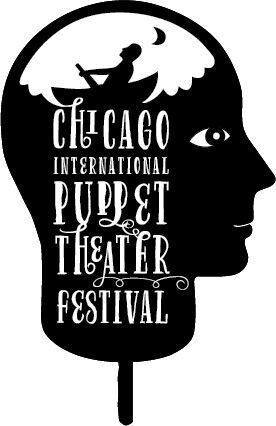Chicago, the puppetry capital of the world for 11 days
January 25, 2019
With more than 100 performances and 24 shows and events from 10 different countries, the Chicago International Puppet Theater Festival hits the city for its third year this month, with Columbia once again partnering with the venture.
At 19 different Chicago venues, the diverse lineup of contemporary puppetry began Jan. 17 and runs through Jan. 27. Columbia College’s Dance Center was a partner for the festival and hosted a performance Jan. 19.
“We gave it a home, which is a very important piece of the puzzle,” said Ellen Chenoweth, director of the Dance Presenting Series at Columbia. “It’s so exciting because there are not that many international, contemporary performances coming to Chicago. All these people are organizing a festival that is bringing cutting-edge work to Chicago. It’s great to be in partnership with them.”
The festival runs every two years and features puppeteers from France, Argentina, Belgium, Chile, Israel, Italy, Japan, Mexico, Norway, Puerto Rico and Spain.
Artistic Director Blair Thomas founded the festival in order to establish Chicago as a center for the advancement of puppetry and chose to make it last 11 days to establish Chicago as the puppetry capital of the world.
“I am a puppeteer,” Thomas said. “I was working in Chicago, and I thought it was a great loss that we don’t have any major puppet festivals in the U.S. at all.”
Thomas said the festival is possible because he has a lot of working relationships with presenters, such as The Art Institute of Chicago, the Museum of Contemporary Art Chicago and Chicago Shakespeare Theater, and he was able to ask them to collaborate.
Thomas was easily able to put together a lineup because the puppeteer community is small enough that he knows many people and has connections outside of the U.S.
“[With] the influence of this dynamic art form as it’s being practiced today—both in its traditional and contemporary forms—there is no other city in the U.S. that has this scale of an event going on,” Thomas said.
Thomas said people should expect the unexpected when attending the festival. Puppetry is not a disciplined show; it is a rare performance with movement, dance, live music and more.
“If you haven’t seen what’s happening in contemporary puppetry, you need to come out and see the work,” Thomas said. “I can guarantee you will be astounded and delighted with what we have to offer.”
Leslie Buxbaum Danzig, theater director, creator and professor at The University of Chicago, directed her first show in the 2019 festival with Jessica Thebus. They put on a work-in-progress show—a show not yet completed by the time of performance.
“We’ve been steadily working on this piece and had the opportunity to show it as a work in progress for the festival,” Danzig said. “It gives us an opportunity to show what would be about two-thirds of the show, not in a fully-polished version, but still very much in the developmental stage as an original work.”
Danzig has known Thomas for more than 20 years, and the two have worked together on various projects. Since the festival was founded three years ago, Danzig has been involved and contributed to the festival in different ways.
“Any festival that brings in artists both nationally and internationally is an enormous opportunity for Chicago audiences,” Danzig said. “Being in the middle of the country, we actually sometimes have less of a presence of international work than the cities on the coast. Being able to see work from other places is super important in terms of expanding the imagination about what these forms can be.”








